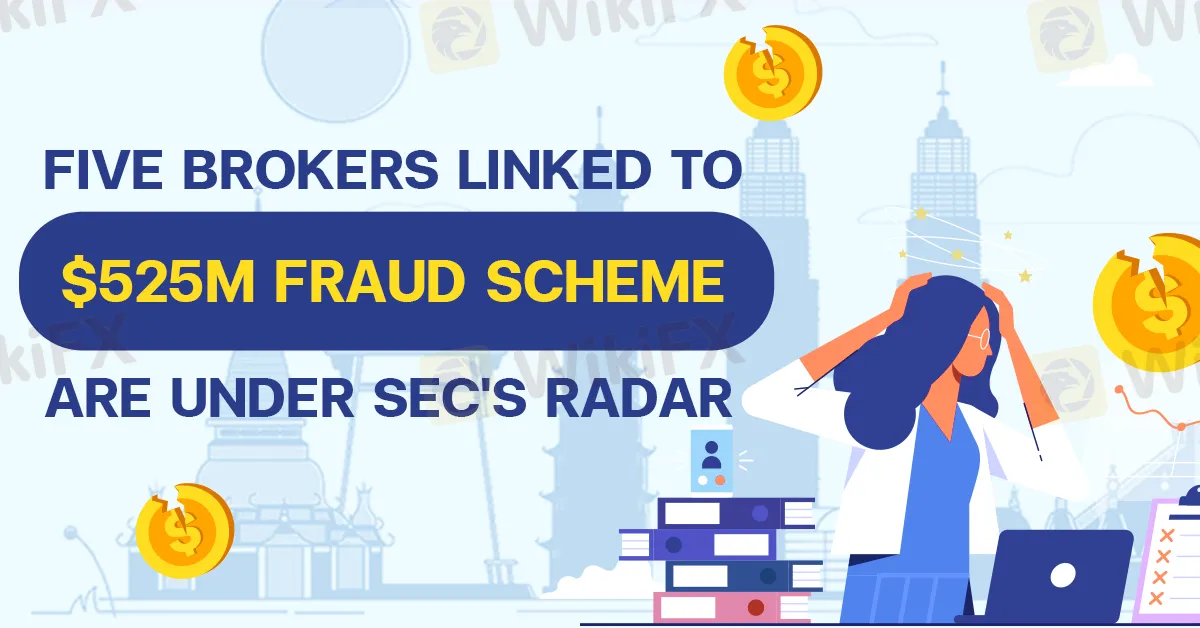简体中文
繁體中文
English
Pусский
日本語
ภาษาไทย
Tiếng Việt
Bahasa Indonesia
Español
हिन्दी
Filippiiniläinen
Français
Deutsch
Português
Türkçe
한국어
العربية
Five Brokers Linked to $525M Fraud Scheme Are Under SEC's Radar
Abstract:The Securities and Exchange Commission (SEC) has filed charges against nine entities, including five individuals, for an alleged multimillion-dollar fraud scheme linked to pre-IPO investments, drawing in over 4,000 global investors.

The Securities and Exchange Commission (SEC) has brought charges against five individuals and four entities allegedly involved in a substantial fraud scheme related to pre-initial public offering (IPO) investments. Among the accused are Raymond J. Pirrello, Jr., Marcello Follano, Robert Cassino, Anthony DiTucci, Joseph Rivera, and their respective companies. These defendants are believed to have engaged in deceptive practices that led to over $525 million in unregistered offerings.
These investments drew in more than 4,000 individuals globally, enticing them with promises of no upfront fees while covertly imposing undisclosed markups. This scheme resulted in illicit profits exceeding $88 million for the defendants and their associates.
As per the complaint, Sheldon Pollock, serving as the Associate Regional Director in the New York Regional Office, highlighted that the defendants allegedly marketed unregistered securities to investors, claiming no upfront fees while purportedly channelling tens of millions through undisclosed fees for their own gain.
The accused allegedly established an extensive network of unregistered sales agents who misled investors by falsely asserting the absence of upfront fees. In reality, investors faced substantial undisclosed markups, reaching as high as 150 percent, benefiting the defendants and their sales agents.
The individuals accused supposedly concealed Raymond J. Pirrello Jr.'s involvement, concealing his past SEC sanctions related to insider trading. The SEC's complaint, filed in the US District Court for the Eastern District of New York, levied multiple violations of antifraud, securities, and broker-dealer registration laws against the defendants. The SEC seeks a permanent injunction, restitution of ill-gotten gains, and civil penalties.

In recent times, the SEC has intensified its pursuit of companies failing to register with the agency. In the previous month, the regulator initiated legal action against Kraken, a San Francisco-based crypto exchange, for allegedly operating unregistered services, encompassing securities exchange, broker, dealer, and clearing agency activities.
The charges involve claims of commingling customers funds and crypto assets with Kraken's own, echoing accusations against Binance and Coinbase. The SEC alleges Kraken operated as an exchange, broker, dealer, and clearing agency without the necessary registrations.
Kraken responded by denying accusations of fraud or market manipulation, asserting that none of the alleged funds were missing or misused. However, while Kraken did not dispute the allegation of commingling funds, it clarified that the SEC did not claim any missing or misused customer funds.

Disclaimer:
The views in this article only represent the author's personal views, and do not constitute investment advice on this platform. This platform does not guarantee the accuracy, completeness and timeliness of the information in the article, and will not be liable for any loss caused by the use of or reliance on the information in the article.
Read more

The Ultimate Guide to Automated Forex Trading in 2025
Modern markets are revolutionized by automated trading systems, which now execute 70-85% of all transactions. These advanced automated trading software solutions, commonly called trading robots or Expert Advisors (EAs), leverage algorithmic precision for automatic trading across forex, stocks, and commodities 24/7. By removing emotional interference and executing trades in microseconds, auto forex trading platforms create fair opportunities for all market participants. For those new to automated trading for beginners, these systems provide disciplined, backtested strategies while significantly reducing manual effort.

Anti-Scam Groups Urge Tougher Action on Fraudsters in UK
Anti-scam groups demand tougher police action on fraudsters as UK fraud rates surge 19%, targeting millions in a penalty-free crime spree exposed by a $35m scam leak.

Will natural disasters have an impact on the forex market?
The forex market is known for its rapid responses to global events, but the influence of natural disasters, such as earthquakes and typhoons, can be less straightforward. While headlines may scream about catastrophic damage and economic disruption, the long-term effects on currency values often depend on a blend of immediate shock and underlying economic fundamentals.

Philippines Deports 29 Indonesians Linked to Online Scam Syndicate in Manila
Online scam groups in the Philippines trick Filipinos into gambling and love scams, from Manila to Bacolod, causing trafficking and pain as police fight back.
WikiFX Broker
Latest News
How Crypto Trading Transforms FX and CFD Brokerage Industry
UK would not hesitate to retaliate against US tariffs - No 10 sources
FCA Warns Against 10 Unlicensed or Clone Firms
CySEC Warns Against 14 Unlicensed Investment Websites
Top Currency Pairs to Watch for Profit This Week - March 31, 2025
Will natural disasters have an impact on the forex market?
Philippines Deports 29 Indonesians Linked to Online Scam Syndicate in Manila
Navigating the Intersection of Forex Markets, AI Technology, and Fintech
Exposed: Deceptive World of Fake Trading Gurus – Don’t Get Fooled!
AI-Powered Strategies to Improve Profits in Forex Trading
Currency Calculator







